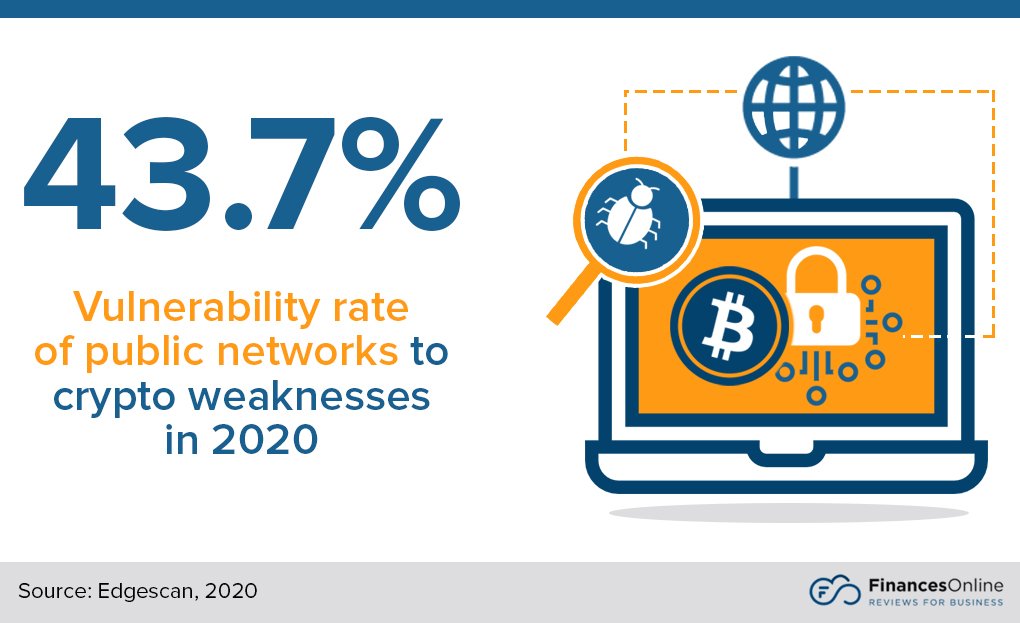Protecting Your Pot of Gold | Tips for Securing Cryptocurrency

No matter if you’re searching for four-leaf clovers or wearing green hats, St. Patrick’s Day always brings a feeling of luck. Like leprechauns hiding the gold at the end of a rainbow, you want to protect not only your physical money, but also your digital currency.
What Is Cryptocurrency?
Cryptocurrency is a peer-to-peer system that allows anyone, anywhere in the world, to send and receive payments. In other words, it is a digital payment system that doesn’t rely on banks to verify transactions. Cryptocurrencies are created through a complex computer process called mining, in which high-powered computers solve math problems so complex they can’t be solved by hand. Once mined, blockchain technology keeps a record of the cryptocurrency to track when and where the currency is sent.
What Is Cryptojacking?
As digital currencies increase in value and prevalence, the attempt to illegally exploit them through money laundering, sanctions violations, and cryptojacking will grow as well.
Cryptojacking is the unauthorized use of a person’s computer to mine cryptocurrency. Most commonly, phishing emails containing malicious links or attachments often allow hackers to install a piece of code directly on the user’s computer without them ever knowing. To prevent these attacks, many businesses deploy regular phishing testing for all employees to ensure they know the tell-tale signs of a suspicious email.
That said, websites or online ads may also be infected with code that installs itself on the individual’s computer via their browser. To mitigate the risk associated with this method of attack, modern security technologies, such as end-point detection and response, track the suspicious behavior of unknown code and alert the owner of the device. Should an individual not have modern technologies to detect an attack once it is running, the cryptojacking malware is free to hog the computer’s resources to run mining software that sends the results to a hacker. Tracking these attacks is challenging because it’s possible to completely erase all digital footsteps of the attack. Some attacks also have worming capabilities that allow them to go undetected while spreading to other devices and servers on a network.
Signs of Cryptojacking
If you suspect you’ve become a victim of cryptojacking, some signs include an overheating device, loud whirring noises, crashing, and a battery draining faster than usual. It is important to use Task Manager or Activity Monitor to make sure the CPU usage on your computer is normal.
Tips for Securing Cryptocurrency
Since digital assets are currently unmanaged by a government entity or central bank, it’s important to be proactive rather than reactive. If you find yourself a victim of a cryptocurrency attack, there’s little to no way to legally regain any of the lost assets. This means the responsibility to protect your money falls solely on you. Included below are tips to make sure your funds are secure.
Research is Key
Currently there are between 2,000 and 4,000 different cryptocurrencies and many different trading platforms. You can assume that all cryptocurrency services will inevitably have a data breach, so it’s important to make sure the service you use contains multifactor authentication, encrypted networks, and “air-gapped” devices that are kept offline when storing cryptocurrency. Verify a cryptocurrency’s legitimacy by reading reviews from other people online and talking with more experienced investors.
Store the Majority of Your Cryptocurrency Offline
It is extremely difficult to protect your money online because there are certain elements, such as server security, that are out of your control. Using a hardware wallet is the smartest long-term storage option since these devices store your private key directly within the device. Instead of typing it to complete a transaction, you physically press a button on your hardware wallet, thus preventing your sensitive information from being entered on a phishing website. It also safeguards other people from breaking in because a PIN is required to access the funds. Avoid accessing your account on public Wi-Fi networks so hackers can’t steal your session cookies. Only process transactions on secure networks and log completely out of your account once you’re finished.
Use Strong Passwords and Multifactor Authentication
Using more than one cryptocurrency platform tends to be safer than using just one. It’s advised to never reuse passwords across your accounts, no matter how strong. A password is considered strong when it has at least 12 to 24 characters and a healthy mix of numbers, symbols, and upper and lowercase letters. For more information on creating the ultimate password, Rocket IT has a tutorial here.
It’s possible to use a trusted password manager, such as LastPass, to help you stay organized. Multifactor Authentication requires two or more verification factors to gain access to an account, effectively protecting you if your password ever gets compromised. Check out this article for information on launching multifactor authentication across an entire business network.
Be Aware of Phishing Attempts
As mentioned previously, phishing attempts are a common way that cryptojacking malware makes its way onto victims’ computers. These attacks can come from anywhere, including texts, social media sites, third-party messaging platforms, or emails. While technology, such as application whitelisting, enhanced spam filters, and next-generation anti-virus, serve to protect a business’s team, they’re no match against the initial phases of a phishing attack. Instead, try supplementing these measures with a phishing training platform that sends out harmless, simulated phishing emails. As a business leader, this will allow you to help your team understand the tell-tale signs of an attack. For example, be wary of emails from crypto investment platforms with subject lines offering outrageous returns.
Keep Your Next Gen Antivirus Up to Date
While cryptojacking may not initially damage your computer or data, they do steal CPU processing resources and make you susceptible to being exploited financially. The only hints that you’ve been attacked is slower computer performance and overheating. Installing network monitoring solutions, such as application whitelisting and endpoint detection and response, can help detect suspicious crypto miners running in the background and protect your device.
What if I Am Actively Trading?
For convenience, a hot wallet is used to store cryptocurrency on the Internet to facilitate easier trading access. This method should only be used for active traders and the amount of funds contained should continually be re-evaluated to minimize potential loss. One notable example of a hot wallet is PayPal, and the company is taking steps to strengthen its foothold in the cryptocurrency world. Curv, a privately held specialist based in Israel, provides companies with digital asset security technology that’s delivered as a cloud service and is set to join a new division within PayPal that’s focused on digital currency, cryptocurrency, and blockchain assets.
I Can Protect Myself, But How Do I Protect My Business?
The more you delve into cryptocurrency and the bigger your wallet gets, the greater the target you become for hacking. And while security measures, such as stronger passwords and multifactor authentication, can protect your personal data, business leaders that want to prevent cryptojacking on a company-wide scale must take more extreme means of protecting their networks. Deploying measures such as application whitelisting and endpoint detection on a single computer might be simple, but how about an entire network? Rocket IT’s Roadmaps help clients launch and maintain security initiatives to proactively keep an organization’s network secure. If you feel your network might be at risk, take Rocket IT’s roadmap assessment to see if a Roadmap is the solution for your business’s needs. Have an emergency that requires immediate assistance? Don’t hesitate to give Rocket IT a call any time at 770-441-2520.
Related Posts
Subscribe to Rocket IT's Newsletter
Stay up to date on trending technology news and important updates.

Find out if Rocket IT is the right partner for your team
Claim a free consultation with a technology expert.















